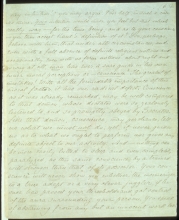Page 21
my intuition!" you may argue. Poor help in such a case as mine. Your intuition would make you feel but that which really was — for the time being; and as to your conscience — you then accept Kant's definition of it? You, perhaps, believe with him that under all circumstances, and even with the full absence of definite religious notions, and occasionally even with no firm notions about right and wrong at all, man has ever a sure guide in his own inner moral perceptions or — conscience? The greatest of mistakes! With all the formidable importance of this moral factor, it has one radical defect. Conscience as it was already remarked may be well compared to that demon, whose dictates were so zealously listened to and so promptly obeyed by Socrates. Like that demon, conscience, may perchance, tell us what we must not do; yet, it never guides us as to what we ought to perform, nor gives any definite object to our activity. And — nothing can be more easily lulled to sleep and even completely paralyzed, as this same conscience by a trained will stronger than that of its possessor. Your conscience will never show you whether the mesmeriser is a true adept or a very clever juggler, if he once has passed your threshold and got control of the aura surrounding your person. You speak of abstaining from any but an innocent work like



Socrates demon. Socrates received many spiritual messages from his daimon, a divine voice that always told him not to do something he was thinking of doing, but never told him to do something. (Apology, 31d)